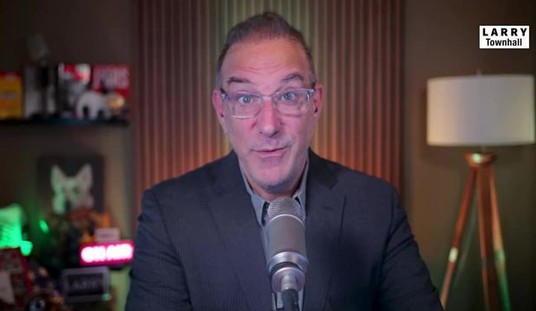Shortly after Donald Trump defeated Hillary Clinton in the 2016 election, I came across a post on social media by a hardcore Hillaryite.
The vocal Democrat recounted the words of her 4-year-old daughter, who’d said, “[Mommy], I wish Hillary had won.”
Comments below the story were explosive. “From the mouths of babes!” “Children are the most truthful!” “God bless the instincts and heart of a child!”
It was, of course, ridiculous. The 4-year-old had only stated the reality they’d been told by the posting parent.
Personally, I don’t understand holding up any young person as a fighter for truth in the world. Children know what they’ve been told, and not much else. That’s not a criticism — you’re not supposed to be solving the world’s problems when you’re young. You’re supposed to be beautifully enjoying your youth, as you barely begin the experiences that will shape you into the adult you’ll one day become.
And that adult — with hindsight, analyses informed by both a developed brain and a memory of what you’ve seen in the world, combined with a study of subjects — will eventually have a solidified take on things.
But here’s the rub: Despite the way it was characterized to me when I was growing up, adults all grow up and reach different conclusions. That whole “Wait ’til you get to be my age and you’ll understand” thing doesn’t really work out. Everybody ends up different. From each other, and also — frequently — different than they began.
Therefore, it seems to me, it’s absurd to take a young person and make them the posterchild (no pun intended) for a perspective. On anything.
How’d you like to be a 40-year-old conservative, but be famous for being a 15-year-old liberal? Or the opposite?
Nevertheless, the Democratic side of things, in particular, has taken to hailing kids who’ve been taught to agree with them as harbingers of truth.
I mean this as no belittlement of the young in any way, but it’s really not a far cry from saying, “See? I told ya so. I’ve always believed this, and now it’s been confirmed — by my pet parrot.”
Yet here we are, and the prestigious British science journal Nature has listed its ten most influential people — in the area of science — for 2019.
One of those: 16-year-old Greta Thunberg, for whom I have absolute respect, who is neither an adult nor a scientist. In my view, she should likely become both before she (or anyone) influences the scientific world.
But Nature hails her as a “climate catalyst.”
And there’s this:
A Swedish teenager brought climate science to the fore as she channeled her generation’s rage.
As noted by The Daily Mail, the list also includes “a physicist building quantum computers, a biologist editing genes in adult humans, and a microbiologist fighting Ebola.”
Apparently, Greta’s trumped all who’ve come before her:
Scientists have spent decades warning about climate change, but they couldn’t galvanize global attention the way that Thunberg did this year. The Swedish 16-year-old has outshone them — and many are cheering her along.
Sonia Seneviratne, a climate scientist from the Swiss Federal Institute of Technology in Zurich, explained that it’s Greta’s heart that caused the media domination:
“Some may wonder why a teenage girl should get more credit and attention for publicly lamenting a well-known dilemma than most climate researchers get for years of hard work and effort. As scientists, we normally don’t dare to express the truth in such heartfelt simplicity.”
Is that it, or has a certain side of the aisle simply placed a child who espouses their particular ideology onto the front page? I’d ask the same, regardless of the issue or the specific take on it.
But I guess it doesn’t matter. According to Union of Concerned Scientists Director of Climate and Energy Angela Ledford, it’s Greta who’s inspiring scientists, not the other way around:
“Greta has inspired scientists along with activists and policymakers. Her mobilization of young people shows the rising generation expects science to inform policy, and may inspire many to become scientists themselves.”
In case you’re wondering about the publication itself, as observed by The Daily Wire, Nature’s no slouch:
[It’s] been cited as one of the most influential science journals in the world; it was first published in 1869. Many scientific breakthroughs were first published in Nature, including the structure of DNA and nuclear fission. In 2007 Nature and the journal Science received the Prince of Asturias Award for Communications and Humanity.
Greta’s really killing it lately — last Wednesday, she was named Time’s Person of the Year.
Here’s what they had to say:
She is telling us that real change is costly, real change requires giving things up, the loss of power and privilege, new systems, new ways of life. She isn’t just inspirational, and she isn’t just talking about the planet, as big as that is! She is indicting an entire way of life, and a way of telling ourselves we are making a difference when we are not.
She’s also telling us what she’s been told to tell us.
That, of course, doesn’t make her wrong. But it also doesn’t make her informed.
But perhaps marketing is a science, and that’s close enough.
-ALEX
Find all my RedState work here.
And please follow Alex Parker on Twitter and Facebook.
Thank you for reading! Please sound off in the Comments section below.















Join the conversation as a VIP Member